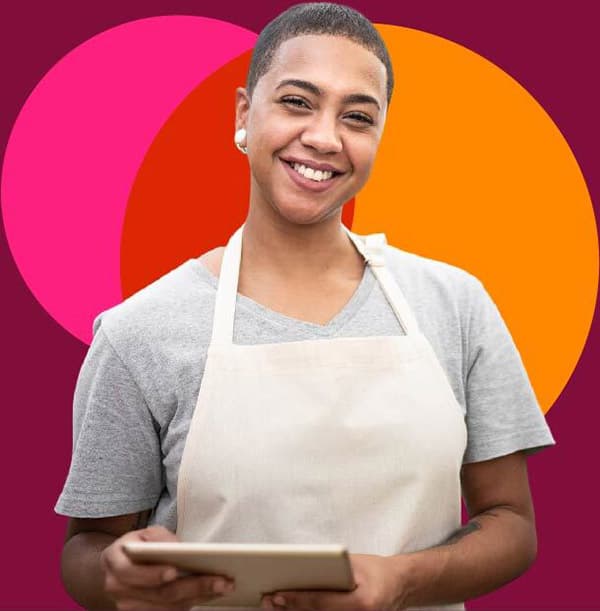December 10, 2020
This past week, our CEO and Co-Founder, Melissa Wong, joined three other industry experts to share their perspectives on delivering delightful customer experience amidst retail’s uncertain future: April Breunle, Director of Retail Showrooms for Lovesac, Matt Weder, Director of Retail Experience at Fleet Feet, and Jordan Ekers, Co-founder & Chief Customer Officer of Nudge.
Together, these panelists reflected on the new safety protocols and new technology that retailers must implement to stay relevant, as well as ways retailers can better support and mobilize their teams to deliver first-class customer experiences.
We all know that frontline associates play an integral role in delivering an exceptional customer experience. But Covid made delivering that experience even more complex: How do you empower employees to deliver empathetic experiences when they aren’t physically able to be in stores with customers?
For LoveSac, adjusting a store experience that customers had come to know and love presented its own unique challenges. As a furniture retailer, LoveSac relied on their showrooms to let customers touch and feel their products before making a sizable investment – sometimes spending upwards of an hour and a half with an Associate before making a purchase. “Furniture is expensive,” said April. “You want to try it. When we shut down our showrooms we didn’t know how we were going to continue to deliver that experience.”
LoveSac turned to technology – specifically, social media – to help bridge the gap. “We pivoted to ‘In Real Life’ demonstrations of our product using Facebook Live,” explains April. LoveSac’s employees took to the platform to demonstrate products from the comfort of their own homes, “even sometimes with cameos from their kids and pets.” The result? A truly engaging and empathetic experience – but 100% virtual. Fleet Feet took a similar approach, offering virtual fittings via Zoom to help customers select the product they needed when they couldn’t come to a store.
Across the board, establishing appointment systems has been a lifeline for retailers struggling to drive, and manage, foot traffic during the pandemic. Not only do appointments encourage foot traffic in stores, but they also enable a safer, more efficient experience.
LoveSac launched an appointment cadence shortly after their showrooms were allowed to re-open, which made adhering to capacity guidelines simpler and gave customers the ability to shop 1-on-1 with an associate. Fleet Feet found themselves a mere two weeks into an appointments pilot program when their stores started facing Covid-mandated closures, and were forced to accelerate the initiative quickly across their fleet. “We were 100% appointment-based as we came out of the closures,” explains Matt. “In fact – we’re still sitting at 30% appointment-based right now, and if you asked me before the pandemic if we’d ever be at that level I’d have said ‘no way.’”
The “appointment button” on a retailer’s website is also a great digital call-to-action that drives important foot traffic into stores. All of the panelists acknowledged that customers who shop across a brand’s digital and physical channels are far more valuable than those who shop just one. Thanks to Covid, the dynamic between a store and a store’s website has fundamentally changed. Now, more than ever, a retailer’s online channels must support what happens in store, and vice-versa.
To ensure teams can flex to meet shifting customer needs, many retailers are implementing new hybrid roles in their stores. “Frontline employees now need to wear multiple hats,” explains Melissa. “We’re seeing a huge need to cross-train them in multiple disciplines, and with that comes a need for more centralized communication.”
As an example, LoveSac recently blurred the lines between their physical and digital presence by training all field leaders on their Customer Service protocols. “Now, when a customer calls a showroom, they’re going to get the same answer they’d get if they called our Customer Service Department,” says April. LoveSac also created a new role – called a “Mission Control Specialist” – to help set customer expectations before they even step foot inside a showroom. These individuals stand outside the showroom front door to answer questions, demonstrate product features, hand out fabric swatches, and set expectations about appointments. “They’re a lot like a host in a restaurant,” says April.
While the benefit of these new and hybrid roles to customers is clear, all panelists stressed the importance of supporting frontline associates through this new standard of complexity. “Between appointments, BOPIS, reserve in store, and more – it’s a lot for an associate to manage,” says Melissa. “Across all of our clients, we see leadership taking on more responsibility to make sure their associates feel supported. There’s now a lot more corporate responsibility, and I think – fortunately – that will last well beyond this pandemic.”
If you’re looking to centralize your own team’s information and want to better equip your associates to provide memorable customer experiences, Zipline can help. Reach out and book a demo today.
Recent Posts
Company News
Zippy is Officially Here!
Employee Engagement
NRF 2025 Day 3 Insights
Industry Trends
NRF 2025 Day 2 Insights
Industry Trends
NRF 2025 Day 1 Insights
Industry Trends
NRF 2025 is your best NRF yet!
Company News
Your ultimate fantasy retail team: Zipline, Legion, RetailNext
Company News
Meet the Retail Rockstars at NRF 2025: Learn, Network, and Get Inspired
Company News
Lighting Up Times Square: A Love Letter to Store Employees
Company News
Zipline Named a Finalist for the NRF VIP Awards!
Retail Communications
How Visionworks Brought Comms into Focus with Creative Hubs
Retail Communications
How L.L.Bean Made Store Communication Awesome
